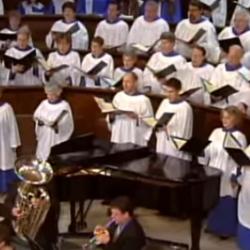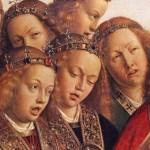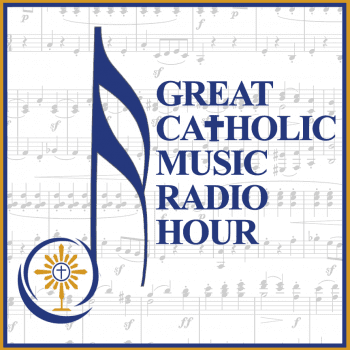With the full implementation of the new missal now about a month away — can you believe it? — writer Jeffrey Tucker is putting it into context, and raising some concerns, particularly when it comes to music:
The “elephant in the living room” of non-liturgical texts at Mass comes through music at Mass. The problem is not the Gloria, Sanctus, or Agnus, since those are prescribed texts and carefully regulated as such (though there is no active regulation over the style in which they are sung). The real problem comes with the songs that the musicians on their own choose to sing at the entrance, the offertory, the communion, and the recessional.
In larger parishes, these additional pieces can be fully six long songs sung at Mass, with as many as 4 or 6 or more verses. There are suggestions in the rubrics that these should be appropriate and speak to the season but ultimately the choice of what to sing is left to the discretion of the musicians themselves. Pastors are not inclined to watch over these selections carefully, even if they had the time to do so. It means that most of the main music has Mass can have absolutely nothing to do with the season or venue.
If musicians are given discretion and lack anything like a serious formation in the Roman Rite, they end up looking for some kind of affirmation of what they do. Being musicians, they look to the audience and begin to regard themselves as performers. They seek praise. They seek evidence that people are emotionally affected by what they do. That means choosing music that connects with the secular and not liturgical sense of what music should do to people, which is not permit prayer but entertain. This trajectory is entirely understandable but deeply regrettable.
Nothing in this new release of the Missal itself will provide a curb this habitual practice or the restrain the publishers who encourage it. That’s because the main musical contribution of the Missal affects the ordinary and dialogue chants of the Mass. It provides no required music for the propers of the Mass: entrance, Psalm, alleluia or tract, offertory, and communion.
To be sure, there is enough in the introductory matter of the Missal to figure out that the propers of the Mass itself should be sung. Paul VI affirms that the music for the Mass is found in the Graduale and the General Instruction clearly states the most preferred options. But the sliver of a loophole to make choices about texts means that there will be no change in the prevailing practice, mainly because most musicians and priests are unaware that there is anything fundamentally wrong about it. They might not like the style of the chosen music, but they don’t feel themselves on firm ground to address that issue. So they end up deferring to the status quo.
Someday you should try an experiment. Count up all the words sung in these non-liturgical songs from the beginning to the completion of Mass. You will find that they are roughly similar to the total words used in the readings of Mass or the homily at Mass. And yet consider that there is no guarantee at all these texts have anything to do with the Mass or the season. Most likely, these songs just offer general spiritual encouragement, which is fine, but this has nothing to do with the liturgy as such, even if the publisher of the music assures us otherwise.
Put all this together and you really draw a disturbing picture. The Missal itself covers half or less, even as little as one third, of the message that people gain from the hour plus time in the week that they spend within the Catholic milieu. They come to Mass and a large part of what they get is something else. When you consider the decades of work that went into this new translation, and the incredible hours of effort and expertise spent on it, it is rather shocking to consider that the net results might not be able to penetrate through the fog of non-liturgical texts that have crept into the Mass over the years.
There’s much more. Read on.












